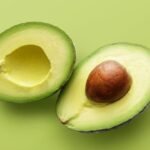Watermelon Diet:Lose 10 Pounds in a Week?

Summer is here, and that means one thing: watermelon is everywhere! Its juicy sweetness is synonymous with picnics, barbecues, and poolside relaxation. But beyond its deliciousness, have you heard about the watermelon diet? It’s making waves as a potentially refreshing approach to weight loss, but is it truly a sustainable strategy, or just another fleeting fad? We’re diving deep into the ins and outs of the watermelon diet, exploring its pros, cons, and everything in between to help you decide if it’s the right fit for you.
The Allure of the Watermelon Diet: A Deep Dive
The watermelon diet, at its core, is a short-term eating plan that relies heavily on watermelon as a primary food source. Typically, it involves a period of restrictive eating, focusing almost exclusively on watermelon, followed by a gradual reintroduction of other foods. The popularity of this diet stems from the perceived benefits of watermelon: it’s low in calories, packed with nutrients, and incredibly hydrating. Watermelon is also a decent source of vitamins A and C, as well as the antioxidant lycopene. The initial weight loss experienced on this diet is often attributed to the low calorie intake and the diuretic effect of watermelon, leading to reduced water retention.
Many people find the idea of the watermelon diet appealing because it sounds simple and relatively enjoyable. After all, who doesn’t love watermelon on a hot summer day? The sweetness can curb sugar cravings, and the high water content can leave you feeling full. However, it’s crucial to understand the limitations and potential drawbacks before jumping on the bandwagon.
Understanding the Basics: How the Watermelon Diet Works
Generally, the watermelon diet is structured in two phases. During the initial phase, which usually lasts for a day or two, you consume primarily watermelon. Some variations allow for a very small amount of other fruits or vegetables, but the focus remains on watermelon as the main source of calories and nutrients.
The second phase involves gradually reintroducing other healthy foods into your diet. This phase typically lasts for a week or longer, and the goal is to transition back to a more balanced and sustainable eating pattern. During this time, you’re encouraged to continue including watermelon in your meals and snacks, but in moderation. You can also add lean proteins, whole grains, healthy fats, fruits, and vegetables.
The rationale behind this two-phase approach is to kickstart weight loss with a very low-calorie intake and then gradually build back to a more sustainable and nutritious diet. However, the extreme restriction of the initial phase is a significant concern and raises questions about the long-term effectiveness and safety of the watermelon diet.
The Pros of the Watermelon Diet: Hydration and Potential Benefits
Watermelon is undoubtedly a healthy food with several potential benefits. First and foremost, it’s incredibly hydrating. With over 90% water content, watermelon can help you stay hydrated, which is crucial for overall health and well-being. Proper hydration supports everything from digestion and nutrient absorption to temperature regulation and cognitive function.
Additionally, watermelon is a good source of essential vitamins and antioxidants. As mentioned before, it’s rich in vitamins A and C, which are important for immune function and skin health. It also contains lycopene, a powerful antioxidant linked to a reduced risk of certain cancers and heart disease.
Some people on Reddit and other online forums have reported feeling less bloated and more energetic after following the watermelon diet, particularly in the short term. They attribute these benefits to the diuretic effect of watermelon, which can help flush out excess water and sodium from the body. Moreover, because of the lower calorie count, the watermelon diet can contribute to weight loss.
However, it’s important to emphasize that these benefits are primarily associated with incorporating watermelon into a balanced diet, rather than relying on it as the sole food source. The restrictive nature of the watermelon diet can negate some of these benefits and lead to other health concerns.
The Cons of the Watermelon Diet: Nutritional Deficiencies and Health Risks
Despite the potential benefits of watermelon, the watermelon diet has significant drawbacks that should not be ignored. The most glaring issue is its extreme restrictiveness and lack of essential nutrients. When you consume primarily watermelon, you’re missing out on critical macronutrients like protein and healthy fats, as well as micronutrients like iron, calcium, and vitamin B12.
Protein is essential for building and repairing tissues, supporting immune function, and maintaining muscle mass. Healthy fats are necessary for hormone production, brain function, and nutrient absorption. The lack of these essential nutrients can lead to muscle loss, fatigue, weakened immunity, and other health problems.
Furthermore, the rapid weight loss often experienced on the watermelon diet is often unsustainable and can lead to a “yo-yo” effect, where you regain the weight as soon as you start eating normally again. This cycle of weight loss and regain can be detrimental to your metabolism and overall health.
Reddit users have also reported experiencing negative side effects such as headaches, dizziness, and digestive issues while on the watermelon diet. These symptoms are likely due to the lack of essential nutrients and the sudden change in dietary habits.
Moreover, for individuals with underlying health conditions like diabetes or kidney problems, the watermelon diet can be particularly risky. The high sugar content of watermelon can cause blood sugar spikes in people with diabetes, and the diuretic effect can strain the kidneys in those with kidney issues.
Is the Watermelon Diet Sustainable? A Long-Term Perspective
The short answer is no, the watermelon diet is not a sustainable long-term solution for weight loss or overall health. While it may provide a temporary boost in weight loss and hydration, it lacks the essential nutrients needed to support long-term health and well-being.
Sustainable weight loss and healthy eating habits involve making gradual, long-term changes to your diet and lifestyle. This includes incorporating a variety of nutrient-rich foods, such as fruits, vegetables, lean proteins, whole grains, and healthy fats, and engaging in regular physical activity.
Instead of relying on restrictive diets like the watermelon diet, focus on creating a balanced and sustainable eating plan that you can maintain for the long haul. This will not only help you lose weight but also improve your overall health and well-being.
Expert Opinions on the Watermelon Diet
Registered dietitians and nutritionists generally discourage the watermelon diet due to its restrictive nature and potential health risks.
According to Lisa Richards, a registered dietitian and nutritionist:
“The watermelon diet is essentially a starvation diet. While watermelon offers some nutritional benefits, it cannot provide all the nutrients your body needs to function properly. Restrictive diets like this can lead to nutrient deficiencies, muscle loss, and a slowed metabolism. It’s much better to focus on a balanced diet that includes a variety of healthy foods.”
Her statement really drives home the main point of concern with the watermelon diet.
Alternatives to the Watermelon Diet: Healthy and Sustainable Approaches
If you’re looking for a healthy and sustainable way to lose weight or improve your overall health, there are many alternatives to the watermelon diet. Some effective strategies include:
Building a Better Approach to Weight Loss
- Balanced Diet: Focus on incorporating a variety of nutrient-rich foods into your diet, including fruits, vegetables, lean proteins, whole grains, and healthy fats. Aim for a calorie deficit by reducing your intake of processed foods, sugary drinks, and unhealthy fats.
- Portion Control: Be mindful of your portion sizes and avoid overeating. Use smaller plates and bowls, and pay attention to your hunger and fullness cues.
- Regular Exercise: Engage in regular physical activity, such as walking, running, swimming, or cycling. Aim for at least 150 minutes of moderate-intensity exercise per week.
- Mindful Eating: Practice mindful eating by paying attention to your food, eating slowly, and savoring each bite. This can help you become more aware of your hunger and fullness cues and prevent overeating.
- Hydration: Drink plenty of water throughout the day to stay hydrated and support your metabolism.
- Professional Guidance: Consult with a registered dietitian or nutritionist to develop a personalized eating plan that meets your individual needs and goals.
Incorporating Watermelon into a Healthy Diet: A Smarter Approach
While the watermelon diet is not a sustainable approach to weight loss, watermelon can certainly be a part of a healthy and balanced diet. Here are some ways to incorporate watermelon into your meals and snacks:
Delicious Ways to Enjoy Watermelon Responsibly
- Snack: Enjoy a refreshing slice of watermelon as a healthy and hydrating snack between meals.
- Salad: Add diced watermelon to salads for a touch of sweetness and hydration. It pairs well with feta cheese, mint, and balsamic vinaigrette.
- Smoothie: Blend watermelon with other fruits and vegetables for a delicious and nutritious smoothie.
- Grilled: Grill watermelon slices for a caramelized and smoky flavor.
- Juice: Make fresh watermelon juice for a hydrating and refreshing beverage.
By incorporating watermelon into a balanced diet, you can enjoy its nutritional benefits without resorting to restrictive and unsustainable dieting practices.
Conclusion: The Watermelon Diet – Enjoy the Fruit, Skip the Fad
The watermelon diet is a tempting idea, especially during the hot summer months when this juicy fruit is abundant. However, it’s crucial to recognize that it’s a short-term, restrictive diet that lacks essential nutrients and is not a sustainable solution for long-term weight loss or overall health. The watermelon diet is not the answer.
Instead of falling for fad diets, focus on creating a balanced and sustainable eating plan that includes a variety of nutrient-rich foods, including watermelon in moderation. Remember, healthy eating is not about deprivation; it’s about nourishing your body with the nutrients it needs to thrive. Enjoy the sweetness and hydration of watermelon as part of a healthy lifestyle, but skip the restrictive and potentially harmful watermelon diet. So, savor that slice of watermelon, but remember that true wellness comes from balance and sustainability, not from extreme restrictions. With this in mind, you will be better off in the long run and can avoid many of the negative health repercussions associated with the watermelon diet.
How Many One Small Avocado Calories Are Really Impacting Your Waistline?








































































































































































































































































































































































































































































































